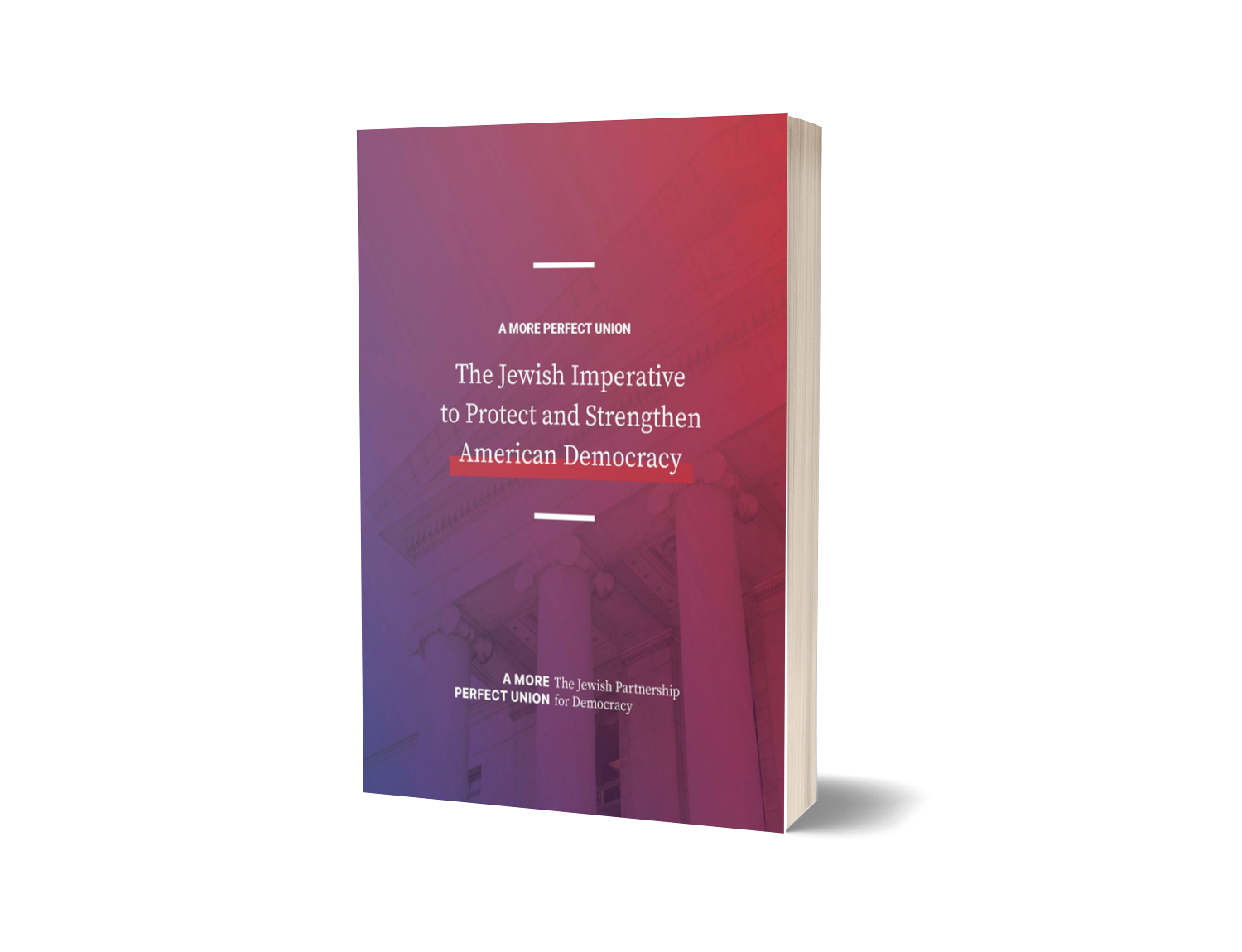
Partner Spotlight:
Religious Action Center of Reform Judaism (RAC)
A Jewish Coalition Fights to Protect Nonprofits
Advocacy and community mobilization are core to the Religious Action Center’s (RAC) mission. The RAC, which is nested within the umbrella of the Reform Movement, has long pursued issue-focused social justice work. So when a new bill was introduced at the end of the 2023-2024 legislative session that could drastically rewrite the rules for government regulation of nonprofits in the U.S., the team at the RAC knew that Jewish organizations across the board were in a precarious situation, as well.
The bill – which would have granted the Secretary of the Treasury nearly unchecked authority to revoke the tax-exempt status of any U.S. nonprofit they accused of supporting terrorism, without sharing evidence – immediately raised red flags for RAC Associate Director Barbara Weinstein.
“There is already a law in place that establishes a transparent, deliberative process for holding to account non-profits that support terrorism, as there should be. [The proposed bill was] deeply concerning to us as a nonprofit, and as a nonprofit that works with other nonprofits,” explained Weinstein.
“Obviously there's a concern about the concentration of power, the politicization of those decisions, and the fact that one of the hallmarks of our democratic system is due process that is transparent. The idea that an individual who wields significant power as a cabinet secretary would have this unilateral authority really goes against the grain of the principles that are central to our way of government."
Activity Summary: The Religious Action Center of Reform Judaism (RAC) coordinated a coalition of more than 55 Jewish organizations to oppose concerning provisions in the "Stop Terror-Financing and Tax Penalties on American Hostages Act" (H.R. 9495).
Partner since: 2022
Recognizing the significance of this threat, the RAC quickly jumped into action, leading a coalition of Jewish organizations to oppose the problematic Section 4 of the bill. In a joint letter, 55 organizations from a cross-section of the Jewish community shared their concerns with one voice, urging Congress to pursue security without compromising democratic principles and constitutional protections.
“[The diversity of the coalition] really ran the gamut because everyone understood the potential for harm that could come from this bill," noted Weinstein. "The fact that we had so many different groups, national, local, legacy, newer groups, it really gave everyone a sense of community solidarity."
While many organizations are hesitant to sign on to public letters, often to avoid suggestions of partisanship, there was enough concern and agreement amongst community leaders to speak up together. Early stages of the letter started within email groups, but word quickly spread to additional organizations, like A More Perfect Union, which offered to amplify the effort.
“This isn't a partisan issue. This is really about transparency, rule of law, and a playing field that is equal, so that all nonprofit entities can have confidence that the law is not being used as a [political] tool against them.”
Weinstein credited the strength of networks like the Jewish Partnership for Democracy for reaching a wider audience. She also offered advice to partners who may be looking to pursue action on other proposed legislation.
"Groups should know that they don't need to be the expert on any one issue. There's lots of other groups in the Jewish community, in the broader faith community, and the even broader advocacy community that can help guide them."
Jewish organizations should feel empowered to step forward, even if this kind of work is new for them.
“Organizations shouldn't feel like they can't engage because they don't have the expertise. There's lots of groups out there that do have that expertise, that are eager to share it and bring more folks to the table. And the most important thing is that we keep raising our voices [because] we need every voice at the table.”
While the bill passed the House, it did so with a notably smaller margin than in its earlier iteration, which RAC attributed to the coalition's efforts. The bill wasn't taken up by the Senate before the end of the last Congress, though similar legislation may emerge in the future.
Read the RAC’s joint coalition letter to Congress here.
*A quick note: A More Perfect Union recognizes that there are diverse viewpoints on H.R. 9495, including those that supported the bill. This Spotlight is intended to highlight the power of working together and sharing expertise across the network.
For information about how your organization can work with A More Perfect Union, contact our team at [email protected].
Dig into our argument for democracy.
To help you understand our argument, approach, and evidence, we’ve published this brief white paper on the Jewish Imperative to Protect and Strengthen American Democracy.
What is transpartisanship?
We believe that protecting and strengthening American democracy is not a partisan issue.
That's why we pursue our work in a spirit of transpartisanship, which rejects the "us vs. them" mindset that characterizes so many political conversations.
We believe that whatever issues we care about individually – from religious freedom to climate change to fair elections – we all have a stake in American self-governance. Engaging effectively in self-governance requires respect and compromise, and we can only exercise these muscles when we focus on what brings us together rather than what sets us apart.
Ultimately, transpartisanship is both an approach and a commitment – to ourselves, to each other, and to future generations.


